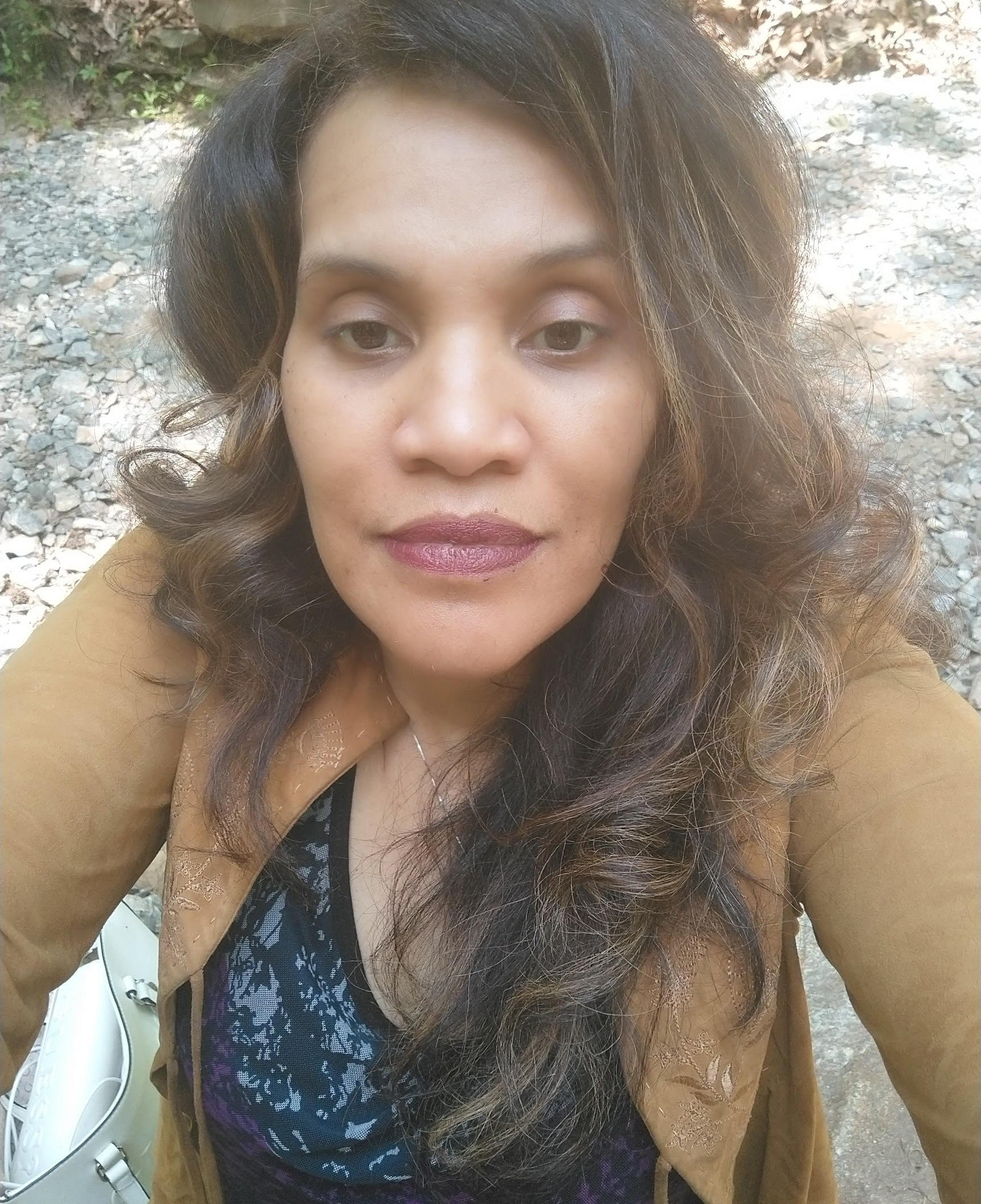
Each month, the Tutor Spotlight will feature a Sunshine Method Tutor who has gone above and beyond to engage with and inspire students to reach their fullest potential. Read on to meet our change-makers!
Meet Janett!
Janett has been tutoring for approximately 16 years now. She previously tutored in Spain for 10 years and continues to be an impact in her community with The Sunshine Method. A few years ago, Janett finished her Master's degree in Public Administration with a concentration in International Development and Influence, which is where she has the opportunity to use the four languages that she speaks (English, Tagalog, Spanish, and French).
We had the chance to speak with Janett about why she is a life-long learner and how education can positively impact a child's life and future.
Join our conversation below:
What is your favorite thing about the Sunshine Method?
I love the opportunities that they provide to help a wide variety of students. I could do K12, but there are also opportunities to teach GED to adults as well and to tutor some university students which I had some experience doing when I was in Spain.
How does the work you do with the Sunshine Method connect to your own personal values?
This [work] gives me the opportunity to give back. I was given a lot of support through the Department of Defense School system, which at that time in the 70's, they had the best schools in the world. I had the opportunity to be put into environments that were more conducive to my learning because I had difficulty functioning in a normal classroom environment.
At that time, they didn't have a name for it, but I had attention deficit disorder (ADD). I still struggle with it as an adult which is why I have a wide variety of things that I do. I don't just tutor, I also work with a consulting firm, but I also have my own endeavors on the side that I do as well. That's the nature of a person with attention deficit disorder. [You're] a different type of learner and a different type of worker and you have to find a way to balance that.
I find that students with ADHD struggle with the same thing, so I'm able to help them to overcome that. It's very fulfilling for me to be able to give back what I have learned to the kids. They’re like, ‘finally, I’ve got somebody that understands how I operate.' My son is also the same way and speaks 4 languages now too. He went through the special education system with the IEP plan, which a lot of my students have.
Can you describe the best experience you've had working with a child? What do you believe made it so successful?
I have a number of successes and I thank God for that opportunity because a lot of these students were facing a lot of difficulties. The ones that I had the most success with were 10th, 11th, and 12th graders. Some of them were lacking English and I had to help them to make that bridge to having more vocabulary on a college level, vocabulary, and grammar. I had one student who didn't have any kind of direction where he was going. This one stands out in my head. He struggled with ADD as well and he wasn't doing as well in his classes as he perhaps could have. He needed 50/50 mentoring and tutoring. The mentoring aspect also involved talking about his future. Like what can he do? What is he good at? What would he like to do as a career? He didn't have any idea, but after seven months of tutoring, he managed to get accepted into a college. His whole outlook on life changed. He went from knowing nothing about what he wanted to do to making decisions to do better in school, getting the help that he needed from me, as well as some other teachers, then finally getting accepted into the college program that he wanted for the field that he wanted to be in. He went from zero to everything and that meant everything to me. That meant everything to me.
What kind of long-term progress have you seen your children make?
What I can see is that they have the motivation to accomplish more. Where before they were discouraged and a little bit lost, they have the motivation now and the tools to do better. Many of them had studying issues or had difficulty structuring their study time and their homework time. Again, some of them lacked English and now that they have those tools, they can move forward into whatever field they decide to go into and finish whatever university program.
How has education changed your life and how has it changed the lives of the children that you work with?
Education has changed my life because it has opened a whole other realm for me. Where before I felt like I was just memorizing just to regurgitate on a test and exam. Now I'm learning for the enjoyment of it, and that's what I try to convey to my students, and I think I actually succeed. It's interesting for them to study now. It's not just memorizing a bunch of facts and a bunch of data and then again regurgitating it on a test. I show them multimedia materials that I use in classes to keep it interactive, and to keep them interested. I find topics of interest specifically for that child, like if the child is interested in art, but they have to learn math, I show them how math is related to art. I show them relationships in data that they would not otherwise have thought of because they simply hadn't been exposed to it or no one had ever presented it to them a certain way. I think it generates a lot of their interest in learning and becoming lifelong learners.
What is something that you've had to overcome?
I've had a lot of difficulties, even as an adult, with organizing. I’ve gotten it now to a place where it’s a lot easier for me to manage educational projects and somebody’s curriculum because, even as a tutor, you have to create a curriculum for your child because they have specific learning styles. There are things that appeal to them and things that bore them so, I create an individual curriculum for those children and that takes a lot of organization 'cause this child is this way, this is their profile, and this child is this way, this is their profile. These are their learning materials that I use that work for them. These are the ones that don't work for this child, so I had to have a whole different set of learning materials. So, organization is so important and that is something I've had to overcome difficulties with in the past, but I think now I've pretty much got it, but with new tools that I'm using in terms of digital tools, I still have to learn how they work and how I can continue to stay organized and utilize them for my students as well.
What do you think it takes to be a Sunshine Method tutor?
I think you have to have a very open mind. I think you have to be dedicated to the task at hand, which is to help that particular student. You almost have to change your mindset with different students because some students work very well with digital things, and some don't. You almost have to change the way that you're presenting your material for each and every student and do what works for them. That's been challenging but it's not impossible. It's so necessary to be successful.
What advice would it give a child that is struggling or having difficulty with the subject?
Difficulties are not places where you stop and you give up. Difficulties are opportunities to learn, and opportunities to develop a method that works for you. Some kids have difficulty solving math problems, but I tell them that it's OK to use your fingers to count. It's OK to write it down or draw circles to count. It's OK to do that. They think, ‘oh, maybe I shouldn't be doing that. I should be memorizing it.’ I said sometimes you're going to memorize, but sometimes you're going to have to draw things. Sometimes you're going to have to count on your fingers until you can memorize it. Then they realize they’re doing the right thing. It's just your manner of learning might be different from somebody else’s. I tell them to use whatever works for them and that helps them to feel acknowledged and it boosts their self-esteem because they're like, ‘Oh OK, then what I was doing wasn't all wrong. I was getting the answer.’ You should be able to use whatever method works for you and that really cheers them up and I enjoy that.
Do you have any tips or strategies when you're working with a child in person or online to keep them engaged?
I think that in a classroom environment, where it's just one on one, you really need to come in with your lesson plan ready. I think it's very important. Even online, I have to say. I do lesson plans for every single class that I have because not only does it keep me organized, but I also think the children really appreciate it. I raised a child who's about 30 years old and they appreciate structure and order. So, if you can really be organized for your in-person and your online courses, I think it really facilitates things and helps you to be more successful.
When I say organized, that means your lesson plan, and the materials that you're going to use. I think it's very important to share your lesson plan with both the parents and the student. That way everybody knows what they're going to be studying and everybody has the materials there attached to the email or the links that they need for the session so they can review it and review it together if they have to. I have some parents who are non-English speakers, but if I'm teaching their kids ESL, guess what? If I show the materials, the parents are going to learn too. That's what I found to be very successful for both in-person and online classes.
What advice would you give to other tutors?
I would advise them to not be discouraged if their first instinct, their first lesson plan doesn't work well. It's open for modification. It's not something set in stone because you can't possibly know a child as well as their parents know them. You're just learning them. So, expect to have to modify your lesson plans and to have to do a little bit of research to find out what works for that child and what doesn't. When I say research, I mean research for materials. I've found in the past, and even now, there are certain materials that do not work for certain students but work for other students. So, I'm constantly modifying, improving, and redeveloping my methodology because of the different learning styles of each particular student. That's the thing— to remain flexible to remain open to modification.
What are your hopes for your students in the future?
I absolutely hope that whatever it is that they choose to do in their life, they're successful at it and that they don't quit because success doesn't always happen overnight. It's something that you may have a series of successes and a series of failures, but the key is never giving up.
Thank you for reading, and thank you, Janett, for your contributions and impact on the next generation!



